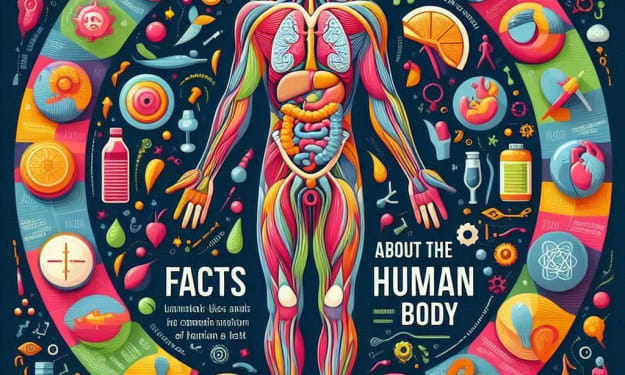Lose Weight Fast Without Starving: Effective Strategies
Including a Delicious 21-Day Smoothie Diet Option

In an era where health and energy are paramount, the quest to lose weight fast remains a top priority for many. Achieving rapid fat loss while maintaining a healthy lifestyle can seem like a daunting task, especially without resorting to extreme measures that leave one feeling starved and deprived. The importance of incorporating a fat loss diet that is not only effective but also sustainable cannot be overstated. It calls for a balanced approach, blending nutrition, exercise, and smart lifestyle choices to achieve the best diet for weight loss. This method ensures a harmonious path to shedding pounds, promoting women's health, and fostering an overall sense of well-being.
This article delves into effective strategies to lose weight fast without the need to starve oneself. Moving beyond traditional diets, it emphasizes the role of fruits, smoothies, and other nutritious options that are easy to incorporate into one's daily routine. Understanding weight loss from a comprehensive perspective—factoring in the principles of healthy eating, the benefits of a balanced nutrition plan, and the impact of lifestyle changes—is crucial. Subsequent sections will guide readers through making sustainable lifestyle adjustments and suggest ways to foster a healthy relationship with food. By the conclusion, readers will be equipped with the knowledge to embark on a journey towards a healthier life, armed with strategies for fat loss that advocate for a joyful, nourished body rather than one who is perpetually hungry.
Effective Weight Loss Strategies Without Food
A Smoothie Diet
Overview of the Smoothie Diet: The 21-Day Smoothie Diet involves replacing a couple of meals per day with smoothies, aiming to melt pounds off without any additional effort. It emphasizes the importance of nutritious ingredients as well.
Potential Benefits and Risks: While smoothies can increase fruit and vegetable intake, they should be part of a balanced diet. Over-reliance on smoothies can lead to nutritional deficiencies and unsustainable eating habits (2).
Recommendations for Implementation: To maximize benefits, include protein and healthy fats in smoothies, control portion sizes, and ensure the inclusion of whole foods in the diet (2).
Try the 21-Day Smoothie Diet Today with an Instant Download and $20 Off!
Practicing Mindfulness and Stress Management
Mindfulness and Weight Management: Mindfulness involves being aware of one’s thoughts and feelings without judgment. It can help manage stress and prevent mindless eating behaviors that contribute to weight gain (3).
Techniques for Mindfulness: Techniques include mindfulness-based stress reduction (MBSR), mindfulness-based cognitive therapy, and mindful eating practices. These help individuals recognize and cope with emotional eating triggers (3).
Long-term Benefits: Regular mindfulness practice can lead to improved stress management and a more mindful relationship with food, aiding in long-term weight management and overall well-being (3).
Intermittent Fasting
Introduction to Intermittent Fasting: Intermittent fasting involves alternating periods of eating and fasting, which can lead to weight loss and health benefits. This method relies on metabolic switching, where the body shifts from using glucose to burning fat (1).
Benefits and Precautions: Studies have shown that intermittent fasting can improve blood pressure, heart health, and brain function. However, it's crucial to consult a healthcare provider before starting, especially for individuals with medical conditions (1).
Understanding Weight Loss
Caloric Deficit and Metabolism
Calorie restriction (CR) is a powerful non-pharmacological strategy for aging attenuation and chronic disease prevention, defined as a sustained reduction of calorie intake while maintaining essential nutrients (4). CR initially leads to weight loss, followed by a decline in energy expenditure (EE) until it stabilizes at a new, lower body weight (4). The primary aim of CR is to reduce the metabolic rate, which is the energy used by the body at rest to maintain vital functions such as breathing and heart rate (4). Lower metabolic rates have been linked to longer lifespans and reduced oxidative damage to cells, potentially improving metabolic health and extending life (4).
The Role of Exercise
Physical activity significantly impacts daily calorie expenditure, which is crucial for weight management (5). The body's basal metabolic rate, which accounts for calories burned at rest, is influenced by muscle mass, body size, and age (5). Daily activities, including non-exercise movements like walking or gardening, contribute to calorie burning through non-exercise activity thermogenesis (NEAT), which varies significantly between individuals (5). Engaging in regular aerobic and strength-training exercises increases the overall energy expenditure, helping to burn more calories and aiding in weight management (5).
Importance of Hydration
Hydration plays a pivotal role in weight loss by influencing digestion, muscle function, and metabolic processes (6). Adequate water intake helps to fill the stomach, reducing hunger and curbing unnecessary snacking (6). Moreover, drinking water can boost metabolism by increasing the body's resting energy expenditure and initiating thermogenesis, especially with cold water, as the body expends energy to heat it to body temperature (7). Proper hydration also supports the kidneys in flushing out toxins and helps maintain essential nutrient levels in the body (6).
Try the 21-Day Smoothie Diet Today with an Instant Download and $20 Off!
Lifestyle Changes for Sustainable Weight Loss
Developing a Consistent Sleep Routine
Importance of Sleep in Weight Management: Adequate sleep is crucial for regulating hormones like ghrelin and leptin, which control hunger and satiety. Insufficient sleep can disrupt these hormones, increasing appetite and cravings, thus hindering weight loss efforts (10).
Strategies for Improved Sleep: Establishing a consistent bedtime routine and creating a sleep-conducive environment can enhance sleep quality. This includes avoiding heavy meals and bright screens before bedtime, and ensuring the sleeping area is dark and quiet (9).
Benefits of Regular Sleep Patterns: Consistent sleep not only helps in managing weight but also improves overall metabolic health, reducing risks associated with diabetes and obesity (8) (10).
Building Healthy Habits
Setting Realistic Goals: Start with attainable goals like improving meal quality or increasing physical activity gradually. This approach helps in sustaining these habits long-term (11).
Incorporating Nutritious Foods: Focus on high-fiber, less-processed foods which not only aid in weight loss but also support overall health. These foods can also improve sleep quality, creating a beneficial cycle of health improvements (8).
Routine Physical Activity: Engaging in regular exercise helps burn calories and is essential for weight management. It also boosts the quality of sleep, contributing to better health outcomes (8).
Utilizing Support Systems
Building a Support Network: Surround yourself with people who encourage and support your weight loss goals. This can include family, friends, or joining a community group that shares similar objectives (12) (13).
Professional Guidance: Consulting with dietitians, nutritionists, or personal trainers can provide tailored advice and accountability, helping maintain focus on your goals (12).
Leveraging Technology: Digital tools like apps can track progress, provide reminders, and offer motivational support, making it easier to stay committed to your weight loss plan (12).
Conclusion
Throughout this article, we've explored a range of strategies aimed at achieving swift weight loss without the discomfort of hunger pangs. From the scientific underpinnings of intermittent fasting to the healthful embrace of smoothies, and the psychological benefits of practicing mindfulness, each approach converges on the crucial principle of creating a sustainable and balanced lifestyle. These methods, underscored by the significance of a caloric deficit, exercise, and hydration, collectively offer a roadmap to not just shedding pounds but also enhancing overall well-being. The discussions extend beyond mere weight loss, illuminating the path toward improved metabolic health, longevity, and quality of life, thereby underscoring the interconnectedness of nutritional choices, physical activity, and mental health in the journey to losing weight effectively.
As we conclude, it is evident that the path to weight loss is multifaceted, requiring a blend of dietary modifications, lifestyle changes, and emotional well-being. Embracing these strategies requires an understanding of their long-term benefits, not only for weight management but also for a healthier, more vibrant life. Among these strategies, incorporating smoothies as part of a balanced diet can serve as a practical step towards achieving your weight loss goals. Those interested in a structured approach may find value in exploring the 21-Day Smoothie Diet for increased health, energy, and weight loss, a testament to the power of nutrition in transforming our bodies and minds. Ultimately, the journey to weight loss is a personal one, enriched by the choices we make every day towards a healthier future.
Try the 21-Day Smoothie Diet Today with an Instant Download and $20 Off!
FAQs
1. What are effective ways to lose weight without becoming too thin?
To lose weight effectively without looking skinny, follow these steps: Avoid detoxes that promise rapid weight loss, steer clear of crash diets, engage in yoga and strength training, ensure consistency in your workout routine, consume nutritious post-workout meals, manage hunger pangs effectively, and always eat in moderation.
2. Do I need to feel hungry to successfully lose weight?
Feeling hungry is not a requirement for weight loss. To lose weight, aim for a slight calorie deficit by increasing physical activity and eating a balanced, reduced-calorie diet. It's important to eat slowly and be mindful of your fullness cues to avoid unnecessary hunger.
3. How quickly can weight be lost through fasting?
Weight loss through fasting varies depending on the duration of the fast. A five-day fast can result in a weight loss of about 4% to 6%, a seven to ten-day fast can lead to a loss of 2% to 10%, and fasting for 15 to 20 days can decrease body weight by 7% to 10%.
4. What strategies can reduce weight in one week?
To reduce weight in a week, limit your carbohydrate intake and choose foods like oats, barley, non-starchy vegetables, and nuts, which have a low glycemic index. Increasing your intake of soluble fiber can also help, as it promotes a feeling of fullness and helps prevent overeating, particularly targeting abdominal fat.
References
(1) - https://www.hopkinsmedicine.org/health/wellness-and-prevention/intermittent-fasting-what-is-it-and-how-does-it-work
(2) - https://www.quora.com/Can-a-smoothie-diet-help-me-lose-weight-and-if-so-how-much-weight-can-I-expect-to-lose
(3) - https://www.everlywell.com/blog/weight-management/mindfulness-for-weight-loss-and-management/
(4) - https://www.ncbi.nlm.nih.gov/pmc/articles/PMC9036397/
(5) - https://www.mayoclinic.org/healthy-lifestyle/weight-loss/in-depth/metabolism/art-20046508
(6) - https://www.medicalnewstoday.com/articles/322296
(7) - https://hub.jhu.edu/at-work/2020/01/15/focus-on-wellness-drinking-more-water/
(8) - https://www.eatingwell.com/article/291992/6-sleep-habits-that-can-help-you-lose-weight/
(9) - https://www.sleepfoundation.org/physical-health/weight-loss-and-sleep
(10) - https://www.ncoa.org/adviser/sleep/sleep-and-weight-loss/
(11) - https://www.health.harvard.edu/staying-healthy/building-simple-habits-for-healthy-weight-loss
(12) - https://blog.healthiapp.com/article/the-importance-of-building-a-support-system-for-your-weight-loss-journey/
(13) - https://www.philiprabitomd.com/how-social-support-can-boost-your-weight-loss-journey
Disclaimers: 1) This article contains affiliate links. If you click and make a purchase, the author might make a commission. 2) AI has assisted the author in writing this article and getting the references together.
About the Creator
Enjoyed the story? Support the Creator.
Subscribe for free to receive all their stories in your feed. You could also pledge your support or give them a one-off tip, letting them know you appreciate their work.






Comments
Indomitable Knowledge is not accepting comments at the moment
Want to show your support? Send them a one-off tip.